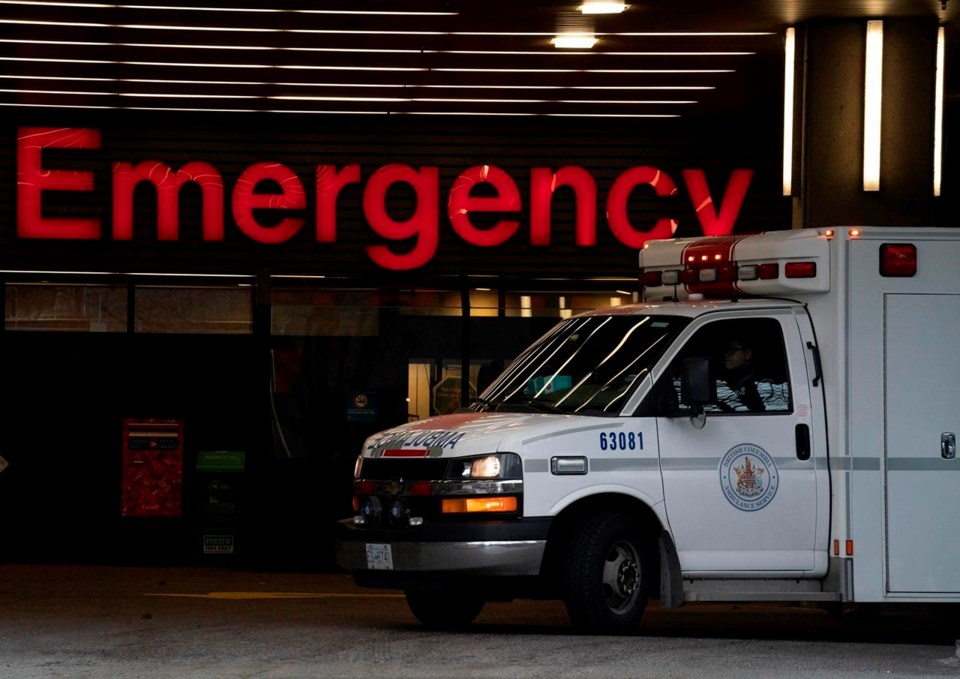VICTORIA — British Columbia is overhauling the ambulance service to reduce wait times for the most serious 911 calls after complaints about long delays during medical emergencies, the health minister says.
Adrian Dix said Wednesday that calls increased dramatically during a recent record-breaking heat wave, but paramedics were already under pressure from the overdose crisis.
Stronger leadership at BC Emergency Health Services will include the appointment of former Vancouver police chief Jim Chu as chair of a board focused on the ambulance service and Leanne Heppell as the new chief ambulance officer.
Heppell is a clinical nurse specialist with 20 years of experience in senior leadership at Vancouver Coastal Health and the BC Ambulance Service.
A "new standard" will be set to improve service for patients and families along with greater support for employees, including in rural communities where more permanent full-time and part-time jobs will be offered to replace casual positions, Dix said.
"The idea is to create, in smaller communities, jobs where people do other work in health care and serve as ambulance paramedics," he said. "That's the direction that we've been going now for three years and we've seen some transformation, and we're going to have to see more."
Calls for ambulance service spiked during the heat wave starting in late June, and B.C. chief coroner Lisa Lapointe has said 486 sudden or unexplained deaths were recorded, a 195 per cent jump in the average normally seen during a five-day period.
Dix said the province has increased the budget for BC Emergency Health Services from over $424 million to $559 million since 2017, hired more paramedics and negotiated the first collective agreement in years with the union representing emergency health service workers.
"All these are important steps but the events of the last few weeks make it clear that there's more work to be done. That essential partnership, the necessary confidence that when we call 911 (that) help is on the way has been tested. And now it needs to be strengthened," he said.
Troy Clifford, provincial president of the Ambulance Paramedics of BC, CUPE Local 873, which represents 4,500 paramedics, dispatchers and call takers, said employees were under incredible stress during the heat wave because they couldn't respond to the high number of calls.
However, the paramedic said problems with the system were inevitable and should not have surprised the government during unprecedented high temperatures that further exposed vulnerabilities. It resulted in mounting complaints from the public calling 911 due to heat-related health problems, especially among elderly people without air conditioning.
"There was incredible pressure on paramedics, and dispatchers were looking at the screen not being able to tell people when they could get an ambulance, knowing that there were hundreds of calls waiting that they needed to dispatch," Clifford said, adding long queues of people on hold took a mental health toll on employees.
"Paramedics were arriving at multiple cardiac arrests and sudden deaths and arriving at calls that had been delayed for a long time. Those impacts were incredible on their well-being. I talked to a lot of paramedics that had never had that kind of experience, the guilt that they wished they could do more."
Clifford said he hopes the appointment of Chu to the board, who knows the challenges of first responders as a former police chief, is a positive move, and that Heppell had already reached out to meet with him.
— By Camille Bains in Vancouver
This report by The Canadian Press was first published July 14, 2021.
The Canadian Press



